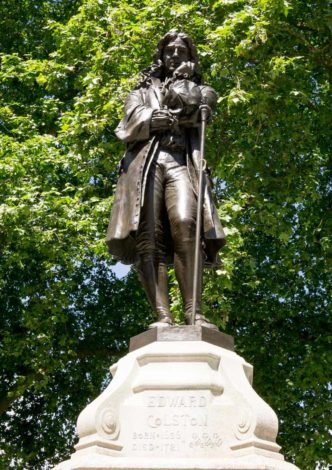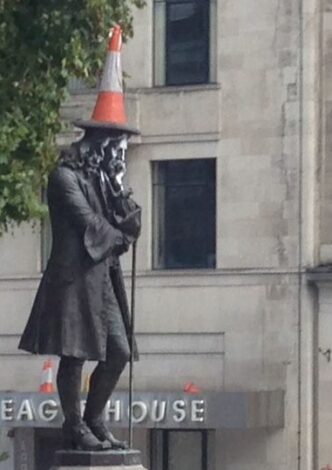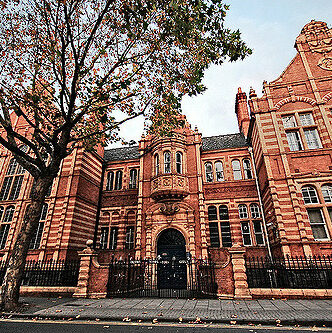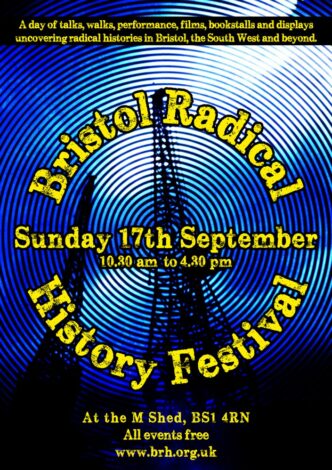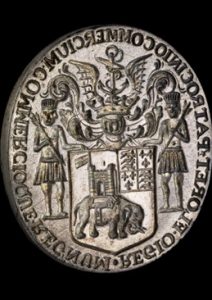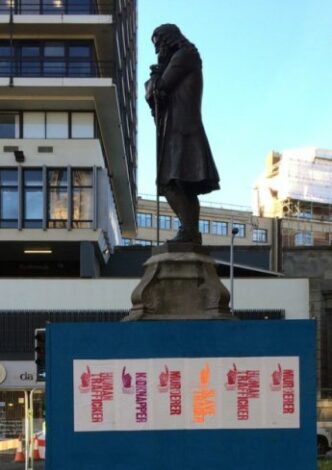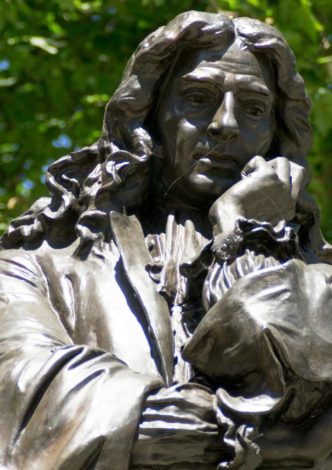Introduction Just over a year ago a project was launched to research, design and install a ‘corrective’ plaque on the statue of Edward Colston in Bristol City Centre. It was claimed by the originator of the idea, Bristol City Council’s Principal Historic Environment Officer, that the new version was needed to stop the statue being damaged by unauthorised ‘protest plaques’. Several of these have been fixed to the statue over the last couple of years and removed by Bristol City Council. It […]
In the light of recent moves to place a ‘corrective’ plaque on the statue of Edward Colston in the centre of Bristol and calls for it to be removed to a museum it seems the time is right to investigate the origins of this monument and the claim emblazoned on it that it was: Erected by citizens of Bristol as a memorial of one of the most virtuous and wise sons of their city Looking into the history of the statue demonstrates the same myth making that has characterised the popular memory of […]
 A Brief Political And Economic Introduction To Bristol Glass
A Brief Political And Economic Introduction To Bristol Glass
There were a number of economic and political changes during the 16th and 17th centuries which prepared the ground for the establishment of the glass industry in Bristol. In 1522 the ‘Society of Merchant Venturers of the City of Bristol’ was incorporated. It grew in power and influence through the 17th century during which the Society revitalised and effectively reorganised itself to allow Bristol’s maritime merchants to take the fullest advantage of the Britain’s developing colonial […]
Introduction On 11th November 2017 Colston's Girls’ School (CGS) announced that they would not be changing the name of the school, despite its associations with Edward Colston, the Bristol merchant who both organised and profited from the transatlantic slave trade. Colston was a major investor, manager and then deputy-governor of the Royal African Company (RAC) which held a monopoly over the West African slave-trade in the seventeenth century.] During Colston’s time managing and then leading the […]
 Not A BRHG Event
Not A BRHG Event
11.30am Redcliffe Caves, Phoenix Wharf, Redcliffe Way, Bristol BS1 6SR Walk ends at Bristol Cathedral at 1.30pm (approx.) After popular demand the Countering-Colston group are re-running their recent history walk. Starting with St Mary Redcliffe church, this walk takes in other historic Diocese of Bristol churches in the city centre where ‘the life and work’ of Edward Colston is still provided religious legitimacy on an annual basis. Along the way we will share the most recent historical […]
Starting with St Mary Redcliffe church, this walk takes in other historic Diocese of Bristol churches in the city centre where 'the life and work' of Edward Colston is still provided religious legitimacy on an annual basis. Along the way we will share the most recent historical research regarding this man's involvement with the transatlantic slave trade and discover how the Victorian elite created a 'cult of Colston' that is now said to form part of our city's 'identity'. At our final stop, […]
Introduction This research article is an examination of the Royal African Company (RAC) and the role of Edward Colston (b. 1636 d. 1721) within the organisation as both an investor and executive. It is unsurprising that this history has not been previously collated in this form as Colston still retains a popular status amongst sections of Bristol’s population as a philanthropist and ‘city father’, his memory protected by powerful civic organisations. Although the depiction of Colston as a […]
It's official, today the board of the Bristol Music Trust (BMT) have announced the Colston Hall will be changing its name. Congratulations to the Counter-Colston campaigners and their supporters for all the work they have done over the last few years to highlight this issue. We have been having a laugh today reading some of the reactions... Apparently Tory Councillor Richard Eddy will now be boycotting the hall....is this because he will only go to venues that are named after slave-traders? […]
The following statement by BRHG historians was published in the Bristol Post last week in response to Councillor Richard Eddy's article the week before entitled: Prominent Tory: Renaming Bristol's Colston Hall 'panders to tiny minority'. Almost a century ago in 1920 the Reverend H. J. Wilkins of Westbury-on Trym penned a biography of Edward Colston which began to expose the troubling history surrounding Bristol’s so-called ‘moral saint’ and ‘great philanthropist’. Wilkins was astounded at the […]
The onset of autumn in Bristol sees several idiosyncratic ceremonies, rituals and traditions that remember the locally born slave trader Edward Colston. Whilst public display has in recent years retreated, commemoration and maintenance of a partial historical narrative focused only on philanthropic endeavours persists ‘behind closed doors’. These closed doors are, for the rest of the year, presented to the Bristolian public as some of the most ‘open’ and ‘welcoming’, they include some of the […]
